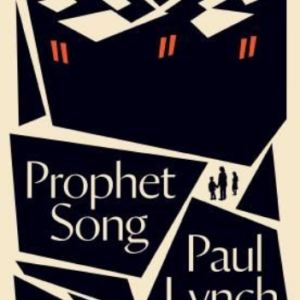Quick Navigation
ToggleHan Kang Wins Nobel Prize In Literature

In a groundbreaking moment for Asian literature, South Korean author Han Kang has been awarded the Nobel Prize in Literature for 2024. This prestigious accolade not only recognizes Han’s exceptional storytelling prowess but also marks a significant milestone in the global literary landscape.
Han Kang’s journey to literary stardom has been nothing short of remarkable. From her early works to her internationally acclaimed novels, she has captivated readers with her unique narrative style and profound exploration of the human condition. But what makes Han’s Nobel win truly extraordinary? And how will this achievement impact the future of Korean literature on the world stage?
As we delve into Han Kang’s literary contributions, the significance of her Nobel Prize win, and the potential ripple effects on the global literary scene, we’ll uncover the fascinating story behind this remarkable author and her path to literary immortality. Join us as we explore Han Kang’s literary journey, analyze her impactful works, and contemplate the exciting prospects that lie ahead for this visionary writer.
Early life and influences
Han Kang, born on November 27, 1970, in Gwangju, South Korea, grew up in a literary family. Her father, Han Seung-won, was a teacher and novelist, which fostered her love for books from an early age. The family’s relocation to Seoul when Han was nine, just before the Gwangju Uprising in May 1980, significantly impacted her worldview and future writing.
Key influences on Han’s early life include:
- The Gwangju Uprising and its violent aftermath
- Frequent relocations during childhood
- Early exposure to literature through her family
Han’s literary influences were diverse, encompassing both Korean and international authors:
|
Korean Authors |
International |
|
Kang So-cheon |
Astrid Lindgren |
|
Ma Hae-song |
Fyodor |
|
Lim Chul-woo |
Boris Pasternak |
Notable works and themes
Han Kang’s literary journey began with poetry in 1993, but she soon transitioned to fiction. Her works often explore themes of:
- Violence
- Grief
- Trauma
- Identity
- Patriarchy
Some of her most notable works include:
- “The Vegetarian” (2007): Her breakthrough novel, winning the International Booker Prize in 2016
- “Human Acts”: Drawing from her memories of the Gwangju Uprising
- “The White Book”: A meditation on loss
- “Greek Lessons”: Exploring grief and language
Evolution of writing style
Han’s writing style is characterized as experimental and metaphor-laden. Her prose is often described as intense and poetic, confronting historical traumas through her narratives. The evolution of her style can be traced from her early poetry to her later novels, which showcase her unique narrative approach and thematic depth.
International recognition before Nobel Prize
Prior to winning the Nobel Prize in 2024, Han Kang had already gained significant international recognition:
- Winner of the International Booker Prize in 2016 for “The Vegetarian”
- Recipient of the Yi Sang Literary Award
- Awarded the Prix Médicis étranger for “We Do Not Part”
- Selected for the Future Library project in 2018
Han’s works have been translated into multiple languages, with “The Vegetarian” being the first Korean language novel to win the International Booker Prize.
With this comprehensive look at Han Kang’s literary journey, we can now turn our attention to the monumental achievement that brought her global acclaim. In the next section, we’ll explore “The Nobel Prize in Literature 2024” and the significance of Han Kang’s historic win.
Now that we’ve explored Han Kang’s literary journey, let’s delve into the momentous occasion of her Nobel Prize win in 2024.
A. Announcement and ceremony details
The Nobel Prize in Literature for 2024 was awarded to South Korean author Han Kang, recognizing her profound contributions to contemporary literature. The announcement, made by the Swedish Academy, highlighted Kang’s innovative prose style and her ability to illuminate the human condition through her works.
B. Jury’s rationale for selection
The jury emphasized several key aspects of Han Kang’s writing that led to her selection:
- Deep exploration of historical trauma and societal constraints
- Unique sensitivity to the interplay between physical and spiritual realms
- Innovative and experimental prose style
- Profound examination of human existence’s fragility
Notable works cited by the jury include:
- “The Vegetarian”
- “Human Acts”
- “We Do Not Part”
C. Han Kang’s acceptance speech highlights
In her acceptance speech, Han Kang reflected on her evolution as a writer, touching upon several pivotal themes:
|
Theme |
Description |
|
Childhood |
Discovery of old |
|
Literary evolution |
Journey from |
|
Thematic |
Love, violence, and |
|
Historical influences |
Impact of |
Kang emphasized her ongoing quest to understand love’s duality and her commitment to conveying sensory experiences and emotional truths through vivid language.
D. Reactions from literary community
The literary community responded with enthusiasm to Han Kang’s Nobel win, recognizing her significant contributions to contemporary literature. Her unique ability to grapple with challenging questions about humanity and trauma resonated with fellow writers and critics alike.
As we transition to examining the impact of Han Kang’s Nobel win, it’s clear that her distinctive voice and profound exploration of the human experience have left an indelible mark on the literary world.
Now that we have covered Han Kang’s historic Nobel Prize win in Literature for 2024, let’s explore the significant impact this achievement has on various aspects of the literary world.
A. Boost to South Korean literature
Han Kang’s Nobel Prize win marks a monumental milestone for South Korean literature. As the first South Korean author to receive this prestigious honor, her achievement:
- Elevates the global profile of South Korean literature
- Brings attention to the rich literary traditions of South Korea
- Encourages more translations of South Korean works
B. Increased global interest in translated works
The recognition of Han Kang’s work highlights the importance of translated literature:
|
Impact |
Consequence |
|
Greater demand |
More translated works from diverse languages |
|
Visibility |
Increased shelf space for translated books in bookstores |
|
Publishing focus |
More resources allocated to translation projects |
C. Influence on contemporary Asian writers
Han Kang’s success is likely to inspire and influence other Asian writers:
- Encourages exploration of complex themes like historical trauma and societal constraints
- Demonstrates the global appeal of narratives rooted in specific cultural contexts
- Showcases the power of innovative and experimental prose styles
D. Potential shifts in publishing industry focus
The Nobel win may lead to significant changes in the publishing landscape:
- Increased interest in South Korean and Asian literature
- More resources allocated to discovering and promoting international voices
- Greater emphasis on translating works from underrepresented languages
- Potential expansion of Han Kang’s available works in English (currently limited to four titles)
With Han Kang’s Nobel Prize win catalyzing these impacts, the literary world is poised for exciting developments. Next, we’ll delve into an analysis of Han Kang’s literary contributions, examining the themes and styles that have earned her this esteemed recognition.
Now that we have explored the impact of Han Kang’s Nobel Prize win, let’s delve into an analysis of her literary contributions, which have solidified her position as a prominent figure in contemporary literature.
A. Exploration of human nature and violence
Han Kang’s works, particularly “The Vegetarian” and “Human Acts,” offer profound insights into the complexities of human nature and the manifestation of violence in society. In “The Vegetarian,” Kang uses the protagonist Yeong-hye’s decision to stop eating meat as a catalyst to explore deeper themes of:
- Personal autonomy
- Societal pressure
- Mental health
- Family dynamics
The novel reveals how Yeong-hye’s simple dietary choice leads to severe consequences, highlighting the oppressive nature of societal norms and the potential for violence within familial relationships.
B. Feminist perspectives in her works
Kang’s writing often challenges patriarchal expectations and explores feminist themes:
|
Aspect |
Example |
|
Gender roles |
Yeong-hye’s defiance |
|
Bodily autonomy |
The |
|
Societal |
Critique of oppressive |
Her narratives give voice to women’s experiences and struggles within a rigid social structure, emphasizing the psychological toll of conformity.
C. Unique narrative techniques
Han Kang employs distinctive storytelling methods to enhance the impact of her narratives:
- Multiple perspectives: In “The Vegetarian,” the story is told through three different viewpoints, offering a layered understanding of the protagonist’s transformation.
- Vivid imagery: Kang’s prose is rich with symbolism, such as the burning trees in “The Vegetarian,” which represent both destruction and resilience.
- Non-linear storytelling: Her works often weave between past and present, connecting historical events with personal experiences.
D. Blend of Korean culture and universal themes
While deeply rooted in Korean culture and history, Kang’s works resonate globally by addressing universal themes:
- Trauma and its long-lasting effects
- The struggle for individual identity within societal constraints
- The human capacity for both cruelty and compassion
In “Human Acts,” Kang explores the Gwangju Uprising, connecting South Korea’s painful past with broader questions about state violence and human dignity. This approach allows readers worldwide to engage with specific historical events while reflecting on shared human experiences.
With this comprehensive analysis of Han Kang’s literary contributions, we can now turn our attention to the future prospects for this remarkable author, exploring how her Nobel Prize win might shape her upcoming works and influence on global literature.
Now that we have explored Han Kang’s literary contributions and their profound impact, let’s turn our attention to the exciting prospects that lie ahead for this remarkable author following her Nobel Prize win in 2024.
A. Anticipated new projects
Han Kang’s Nobel Prize recognition is likely to spur new creative endeavors. Given her history of exploring themes of trauma, humanity, and identity, we can anticipate future works that continue to delve into these areas with her signature “intense poetic prose.” Her recent publications, including “Greek Lessons” and short stories in esteemed journals, suggest a continued commitment to pushing literary boundaries.
Han’s Nobel win is likely to have a lasting impact on future generations of writers, particularly in Asia. Her influence may manifest in:
- Inspiring more diverse voices in literature
- Encouraging exploration of challenging themes in writing
- Promoting the value of “intense poetic prose” in addressing complex subjects
As Han continues to engage with the literary community and maintain her presence in Seoul’s cultural landscape through her bookstore, she is well-positioned to mentor and inspire emerging writers directly and indirectly.
As we look to the future, Han Kang’s Nobel victory opens new doors for Asian literature on the global stage. Her success serves as an inspiration to emerging writers and reinforces the importance of diverse voices in the literary world. Readers are encouraged to explore Kang’s rich body of work, as it offers a window into the complexities of the human experience and the transformative power of literature.



